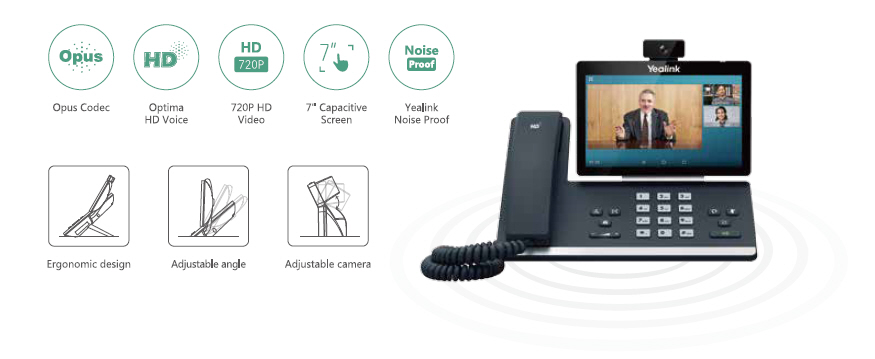Introduction
In the ever-evolving world of communication, two titans stand at opposite ends of the ring: VoIP phone systems and traditional landline phones. As technology advances and our reliance on instant connectivity grows, the battle between these two methods of communication becomes increasingly relevant. So, which is better? Is it time to hang up on your old landline and switch to a modern VoIP phone system? Let’s dive deep into this electrifying showdown.
The Battle of Communication: VoIP Phone Systems vs Traditional Landline Phones
When you think about your communication needs, you might picture a simple phone call. Yet, beyond that call lies a complex web of choices. The struggle between VoIP (Voice over Internet Protocol) and traditional landlines is not just about making calls; it’s about embracing the future versus clinging to the past. Each has its merits and pitfalls that can impact businesses and households alike.
What is a VoIP Phone System?
A VoIP phone system allows users to make calls using the internet rather than traditional telephone lines. This cutting-edge technology converts voice signals into digital data packets, transmitting them over the internet. But what does this mean for everyday users?
- Cost Efficiency: With lower costs for long-distance calls, many find that switching to a VoIP service saves them money. Flexibility: Users can take their phone service anywhere there’s an internet connection. Advanced Features: Many VoIP systems come with features like voicemail-to-email transcription, caller ID, and conferencing capabilities—often at no additional cost.
Traditional Landline Phones: A Time-Tested Approach
On the other hand, we have traditional landline phones, which rely on copper wiring for voice transmissions. While some may argue that these are "old-school," they boast reliability in certain situations.
- Reliability: During power outages or natural disasters, landlines often remain functional when cellular networks fail. Sound Quality: Many users believe that traditional phones provide clearer sound quality. Simplicity: For those who prefer straightforward communication without tech frills, landlines offer ease of use.
Key Differences Between VoIP Phone Systems and Traditional Landlines
| Feature | VoIP Phone System | Traditional Landline | |------------------------------|-----------------------------|----------------------------------| | Cost | Generally lower | Typically higher | | Mobility | Highly portable | Fixed location | | Call Quality | Depends on internet speed | Typically consistent | | Additional Features | Rich in features | Limited | | Reliability | Can be interrupted by outages| More reliable in emergencies https://canvas.instructure.com/eportfolios/3094699/judahujzv879/finding-the-right-balance-between-cost-and-features-in-your-voip-plan |
Why Choose a VoIP Phone System?
Switching to a VoIP phone system can revolutionize how you communicate. Here are some compelling reasons:
Scalability: Businesses can easily add or remove lines based on their current needs. Integration with Other Services: VoIP can integrate with other software tools like CRM systems for enhanced customer interactions. Global Reach: International calls can be made at a fraction of the cost compared to traditional services.Challenges with VoIP Technology
While there are clear advantages, it’s essential to consider potential drawbacks:
- Internet Dependency: If your internet goes down, so does your phone service. Quality Issues: Poor internet connections can lead to dropped calls or choppy audio.
VoIP vs Landline: Cost Comparison
When evaluating options for home or business communications, cost is often king. Let's break down the expenses involved with both systems.
Initial Setup Costs
The initial investment in hardware and installation can vary significantly between these two options:

- VoIP Phone Systems typically require purchasing IP phones or adapters but might offer zero-cost setups through certain providers. In contrast, setting up a traditional landline usually involves fees from local telecom companies for installation and equipment rentals.
Monthly Expenses
On average:
- A basic residential landline plan might cost around $30-$50 per month. A robust VoIP plan could range from $15-$30 monthly per user.
Long-Term Savings with VoIP
For businesses particularly reliant on communication:
Long-distance calling costs are significantly reduced. Bundling services (like internet) could yield additional discounts.Performance Analysis: Call Quality and Reliability
Evaluating Call Quality in Both Systems
Call quality is paramount when discussing communication technologies:
For VoIP:
The clarity of calls depends heavily on your internet connection's strength and stability:
- High-speed connections yield excellent audio quality. Voice clarity issues can arise during peak usage times if bandwidth is insufficient.
For Landlines:
Traditional landlines generally provide consistent call quality due to their dedicated infrastructure:
Sound clarity remains strong even during high-demand periods since they don't rely on shared bandwidth.Reliability During Emergencies
One poignant aspect where tradition shines through is reliability during emergencies:
In severe weather conditions or power outages, traditional lines often outperform their modern counterparts since they don’t depend on electricity or broadband connections.Advanced Features: What Do You Get?
Both systems offer distinct features suited for different needs.
1. Enhanced Features with VoIP
A myriad of features comes standard with most VoIP services:
- Call Forwarding: Forward calls to mobile devices seamlessly. Voicemail Transcription: Receive voicemails via email or text message. Conference Calling: Host meetings without needing a separate service.
2. Limited Features with Traditional Phones
Traditional systems tend to keep things simple:
Basic voicemail Caller ID Call waitingHowever, advanced features are often not included without extra charges.
FAQ Section
1. What does “VoIP” stand for?
VoIP stands for Voice over Internet Protocol, which refers to technology that allows you to make voice calls using an internet connection instead of traditional telephone lines.
2. Is a VoIP phone system suitable for businesses?
Absolutely! Many businesses prefer VoIP phone systems due to their scalability and advanced features that enhance customer interaction and collaboration among employees.
3. What do I need to set up a VoIP phone system?
To set up a VoIP phone system, you'll need an internet connection (preferably high-speed), compatible IP phones or adapters, and possibly an account with a VoIP provider.
4. Are there any hidden costs associated with landline phones?
Yes! Often there are installation fees, equipment rentals (for modems), taxes, and surcharges that increase monthly expenditures beyond basic advertised rates.

5. Can I keep my existing number when switching to VoIP?
Most VoIP service providers allow you to port your existing numbers over without losing them; however, be sure to check specifics with your chosen provider beforehand.
6. How do I ensure good call quality with my VoIP phone system?
To maintain good call quality:
Use high-speed broadband connections Limit simultaneous downloads/uploads during calls Consider using Quality of Service (QoS) settings on your routerConclusion
In this epic showdown— The Battle of Communication: VoIP Phone Systems vs Traditional Landline Phones—it’s clear both have unique strengths and weaknesses tailored toward different needs and preferences within our fast-paced society today.
If you're after mobility combined with advanced features at lower costs while still keeping an eye out for potential hiccups concerning connectivity stability—then jumping onto the VoIP bandwagon might just be your best bet!
Conversely, if simplicity or reliability during emergencies tops your priority list—sticking it out with trusted old-fashioned telephony may serve you well! Ultimately it boils down to individual needs; no one solution fits all!
Whichever path you choose in this ongoing battle of communication methods—embrace change wisely while staying true to what keeps you connected!